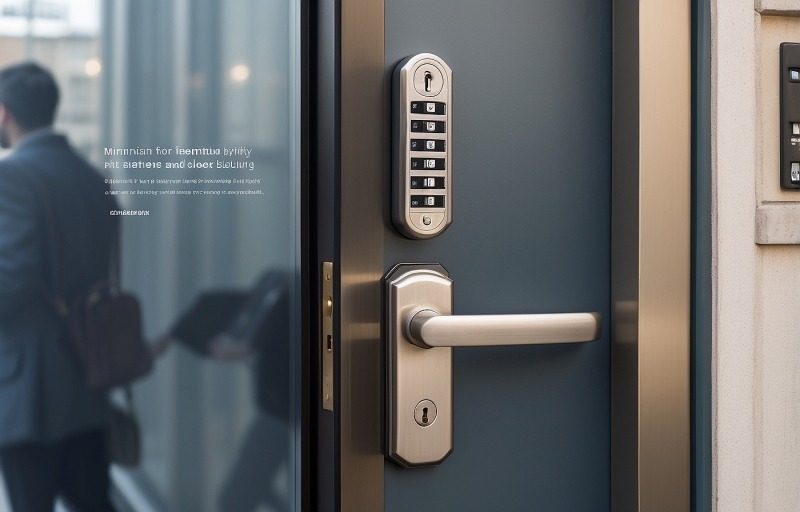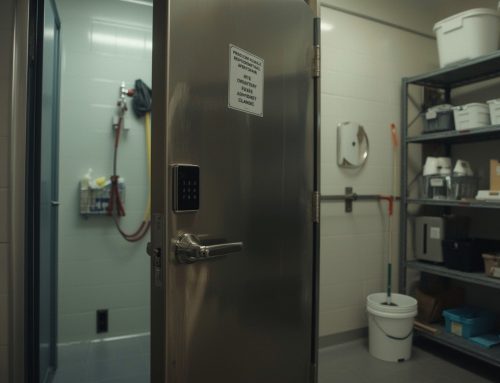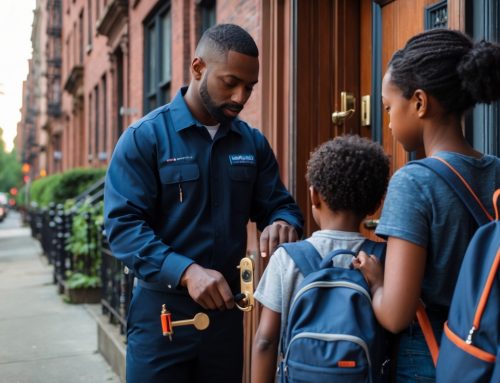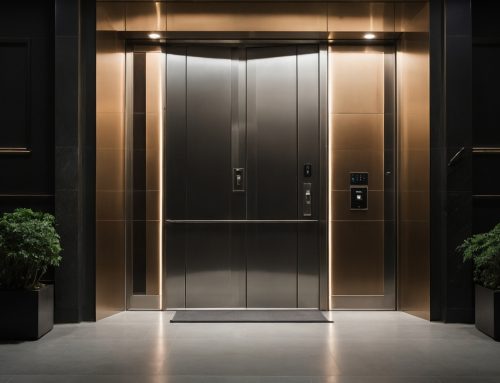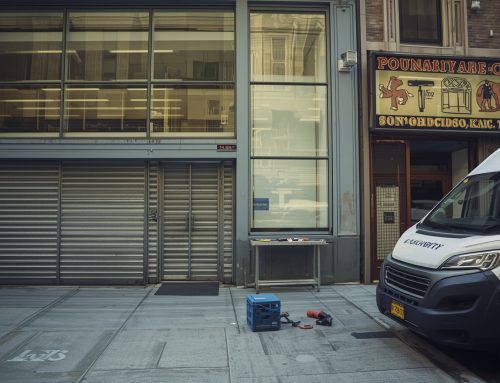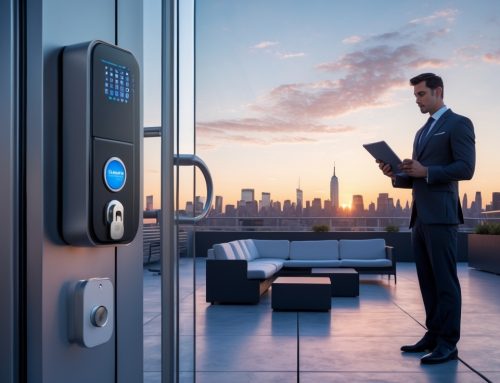Looking for the best locks for NYC apartment building main entrances? In a city that never sleeps, securing your building’s entry points is more than a necessity—it’s a priority. At iLocksmiths, we understand the unique security challenges New Yorkers face. With over 11 years of experience and 24/7 service across all five boroughs, we help property owners choose high-security locks that truly protect.
Mul-T-Lock, Medeco, and Schlage Primus are among the top-rated locks for NYC apartment building entrances. These brands offer advanced key control, pick resistance, and durability. In this article, we’ll break down the best lock options, explain what makes them ideal for NYC buildings, and guide you on how to choose the right one for your property.
But these aren’t the only locks worth considering. Security expert Marc Tobias, author of “Locks, Safes, and Security,” emphasizes the importance of certified high-security locks in urban environments. So, let’s dive into the most trusted and tested locks that can keep your NYC apartment building safe and secure—starting now.
Understanding NYC Building Security Requirements
New York City apartment buildings face unique security challenges. High population density and elevated crime rates demand robust entrance protection. Constant foot traffic increases the risk of unauthorized access. Additionally, older buildings often lack modern security infrastructure, making them vulnerable.
NYC building codes enforce strict regulations on entrance security. These include requirements for fire-rated doors, self-closing mechanisms, and approved locking systems. Landlords must ensure that locks comply with both the NYC Housing Maintenance Code and the Fire Code. Failure to meet these standards can result in fines or legal action.
Choosing the right lock isn’t just about security—it’s also about compliance. Locks must allow safe egress during emergencies. Deadbolts, for example, must not require keys from the inside. This ensures residents can exit quickly in case of fire or power failure.
For expert guidance, consult a trusted residential locksmith familiar with NYC regulations. They can recommend solutions tailored to your building’s needs. You can also explore our Park Slope service area for localized support. Prioritizing compliance and safety helps protect both property and lives.
Types of Locks Suitable for Apartment Building Main Entrances
Mortise locks are a top choice for apartment building entrances. They offer high durability and resist tampering. Cylindrical locks are easier to install but provide moderate security. Electronic locks, including keypad and card access systems, add convenience and control. However, they require regular maintenance and power sources. Magnetic locks work well with access control systems but may fail during power outages. Smart locks integrate with mobile apps, offering remote access and real-time monitoring.
Mechanical locks, like mortise and cylindrical types, are cost-effective and long-lasting. They don’t rely on electricity, making them reliable during outages. However, they lack advanced access control features. Electronic systems provide better security and tracking but come with higher installation and maintenance costs.
For multi-unit buildings, mortise locks offer a balance of strength and affordability. Smart locks are ideal for modern buildings seeking advanced access control. Magnetic locks suit high-traffic areas but need backup systems. To explore professional installation options, visit our commercial locksmith services. For residential upgrades, check out our residential locksmith services. Choose a lock system that aligns with your building’s security needs and budget.
Key Features to Look for in a Main Entrance Lock
When choosing a lock for your NYC apartment building’s main entrance, prioritize ANSI/BHMA Grade 1 certification. This ensures top-tier strength and durability. Look for models with high pick and bump resistance to prevent unauthorized access. These features are critical in high-traffic urban environments.
Access control is another must-have. Systems with key fobs, biometric scanners, or keypad entry offer both convenience and security. They also allow for easy user management, especially in multi-unit buildings. These systems reduce the risk of lost or copied keys.
Modern locks should also integrate with building management systems. Remote access capabilities let property managers monitor and control entry points in real time. This adds a layer of oversight that traditional locks can’t match.
For added protection, consider pairing your lock system with security cameras. This combination enhances both deterrence and accountability. If you’re upgrading your building’s entry system, consult a trusted commercial locksmith for expert guidance. They can recommend solutions tailored to your property’s needs.
Top Lock Brands Recommended for NYC Apartment Buildings
When it comes to securing NYC apartment buildings, several lock brands consistently stand out. Schlage offers a wide range of durable, ANSI Grade 1 certified locks. Their smart lock systems are popular in modern residential complexes across Park Slope and other Brooklyn neighborhoods.
Mul-T-Lock is known for its high-security cylinders and patented key control systems. Many luxury buildings in Manhattan rely on Mul-T-Lock for its pick-resistant technology and robust design.
Medeco locks are trusted for their drill-resistant features and key duplication restrictions. Numerous co-op buildings in Queens have upgraded to Medeco for enhanced tenant safety.
Yale combines traditional craftsmanship with smart technology. Their touchscreen deadbolts are frequently installed in renovated brownstones throughout Greenpoint.
ASSA ABLOY, a global leader, owns several top-tier brands and delivers advanced locking solutions. Their products are often used in high-traffic lobbies and commercial-grade entrances.
Each of these brands brings unique strengths, from smart integration to physical security. NYC property managers consistently choose them for their reliability and industry reputation.
Smart Lock Systems and Access Control Technologies
Urban apartment buildings across NYC are rapidly adopting advanced locking technologies. These systems offer more than just keyless entry—they redefine convenience and control. Residents can unlock doors using smartphones, key fobs, or even biometric data. Through mobile apps, users manage access remotely, receive real-time alerts, and monitor entry logs via cloud-based platforms.
Landlords and property managers benefit significantly. They can issue temporary codes for deliveries or maintenance without being on-site. Remote access eliminates the need for physical keys, reducing lockout incidents. Additionally, audit trails provide a clear record of who entered and when, enhancing building security.
Despite the advantages, smart locks come with challenges. Power outages or dead batteries can disrupt access. Cybersecurity remains a concern, as hackers may target vulnerable systems. Regular updates and maintenance are essential to ensure reliability.
Still, the convenience outweighs the risks for many. For those considering upgrades, our residential locksmith services offer expert installation and support. Property owners in Park Slope and other NYC neighborhoods can rely on us for secure, modern solutions.
Installation Considerations and Professional Services
Hiring a professional for main entrance lock installation ensures proper alignment, durability, and optimal security. Many older NYC buildings have unique door frames that may not support modern locking systems without modification. A skilled technician evaluates these factors before installation, avoiding costly mistakes. Always verify that your locksmith is licensed, insured, and experienced with high-security systems. Check reviews and confirm their expertise in NYC-specific building codes.
Look for specialists who offer both residential locksmith and commercial services. This versatility often reflects broader knowledge and reliability. When choosing a provider, request a detailed quote upfront. Installation costs typically range from $150 to $500, depending on lock type and door condition. Upgrades like smart locks or access control systems may increase the price but offer long-term value.
Avoid DIY installations that compromise safety. Instead, consult a trusted local expert. For fast, professional service, reach out through the contact page. Investing in expert installation not only protects your property but also ensures compliance with building regulations.
Maintenance and Long-Term Security Planning
Regular maintenance ensures locks function smoothly and extend their lifespan. Deadbolts require occasional lubrication and alignment checks. Electronic locks need battery replacements and software updates. High-security systems benefit from professional inspections every six months. These simple steps prevent unexpected failures and costly repairs.
Periodic security audits are essential. They help identify vulnerabilities before they become threats. During audits, locksmiths assess lock integrity, access control systems, and entry logs. Based on findings, they may recommend lock rekeying or upgrades to enhance protection.
Tenant turnover demands prompt action. Always rekey or replace locks when occupancy changes. This prevents unauthorized access and maintains tenant trust. Update digital access credentials immediately after move-outs. Delays can compromise the entire building’s security.
Keep a log of all keyholders and access codes. Review it quarterly to ensure accuracy. For added protection, consider integrating security cameras at main entrances. They deter intruders and support incident investigations.
Partnering with a trusted locksmith ensures consistent upkeep. Schedule regular service checks and stay ahead of potential issues. Proactive planning today secures peace of mind tomorrow.
Legal and Liability Considerations for Property Owners
New York City landlords must comply with strict housing laws to ensure tenant safety. Building entrances require secure, functioning locks at all times. Failure to maintain proper security can lead to serious legal consequences. If an unauthorized person gains access due to a faulty lock, the property owner may be held liable. This includes potential lawsuits, fines, or insurance complications.
To reduce risk, landlords should document every lock installation and upgrade. Keep receipts, service records, and photos of completed work. These records can serve as legal protection in case of disputes or incidents. Additionally, working with a licensed commercial locksmith ensures compliance with local codes and standards.
Regular inspections are also essential. Schedule routine checks to identify worn or outdated locks before they fail. Consider upgrading to high-security systems for added protection. For residential properties, partnering with a trusted residential locksmith service can streamline this process.
Ultimately, proactive security measures not only protect tenants but also shield landlords from liability. Don’t wait for a break-in to take action.
Cost Comparison and Budget Planning
Mechanical deadbolts typically cost between $50 and $150, with installation adding another $100 to $200. Smart locks, on the other hand, range from $150 to $300, and professional installation can push the total to $500 or more. Maintenance for traditional locks is minimal, while smart systems may require software updates and battery replacements, increasing long-term costs.
Upfront, smart locks seem expensive. However, they offer remote access, audit trails, and integration with security cameras, which can reduce future security expenses. Mechanical locks are cheaper initially but may require frequent rekeying, especially in high-turnover buildings.
For small buildings, prioritize durable mechanical locks to stay within budget. Larger complexes benefit from smart systems that streamline access control. Consider bulk discounts when purchasing multiple units. Always factor in installation and future maintenance when planning.
To get accurate pricing and expert advice, reach out to a trusted commercial locksmith. They can help tailor solutions to your building’s needs. Planning ahead ensures you invest wisely without compromising security.
Frequently Asked Questions (FAQs)
For NYC apartment building entrances, high-security deadbolts or access control systems offer the best protection. Smart locks are safe when professionally installed and regularly updated. For multi-unit buildings, choose commercial-grade smart systems with encrypted access. Landlords should rekey or replace locks between tenants or every few years to maintain security. You can upgrade to a modern lock system without replacing the entire door, depending on the door’s condition and frame.
NYC law requires self-closing, self-locking doors with tamper-resistant locks for main entrances. When deciding between a key fob and a traditional key, consider convenience, scalability, and tenant preferences. If a tenant loses their key or fob, rekey the lock or deactivate the device immediately. Some security upgrades may qualify for local tax incentives—check with NYC housing authorities.
To stay compliant with fire codes, ensure all exits remain accessible and unobstructed. For deliveries and guests, use video intercoms or temporary access codes. These systems improve convenience without compromising safety. Explore our commercial locksmith services for tailored solutions. For residential upgrades, visit our residential locksmith services page.

